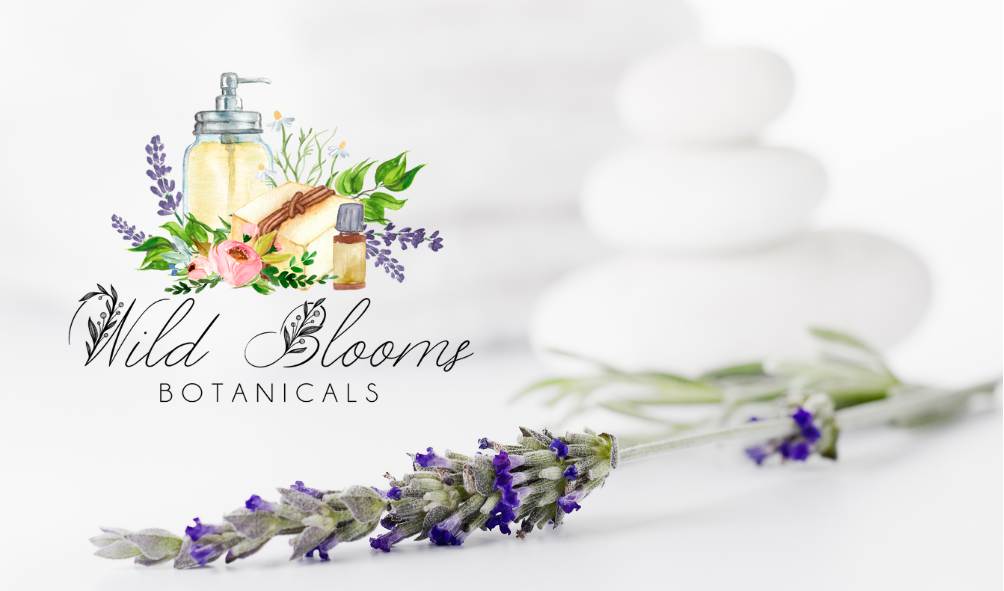It’s no secret that medication needs to be taken seriously, and when you start a new medication you should ask your pharmacist plenty of questions and read through all of the paperwork that comes with it. But most of us don’t.
Essential oils can make a positive impact on your health and wellbeing as long as you use them in a safe way. The healing powers of plants, particularly essential oils were first recognised by our ancestors in 1800 BCE, where they were used to strengthen immunity and heal the sick. Nowadays, essential oils are used as a natural alternative to help improve physical and mental health, wellbeing and overall quality of life.
Putting essential oils on your skin is called “topical application,” and it’s a great way to access the therapeutic benefits of essential oils. Your skin is your body’s largest organ. It may seem impermeable, but it’s not! Think of your skin as a thick membrane that keeps most foreign substances out of your body, while allowing some to pass through. Once they’re absorbed by your skin, they enter your bloodstream and have various effects on your body. You can use essential oils for many different purposes; pain relief, releasing muscle tension (calming inflammation), skin care (promoting cell repair), daily immune support (delivering antioxidants), emotionally – such as for relieving stress, getting a good night’s sleep, and many more!
As a starting point know this, essential oils can interfere with medications, so please take this seriously and speak to your medical practitioner when starting with essential oils or new medications. This article is just a starting point for you with some tips you need to know to avoid potential reactions, but you need to look into your own specific situation throughly before proceeding with essential oils.
If you decide to purchase an essential oil blend, have a look on bottle of blend to see which essential oils are included in the ingredients list. You may not realise how many different essential oils are in the blend!
Aromatherapist Robert Tisserand has gathered a great deal of information in this area and there are a few leading reasons why essential oils can affect medication. For example, essential oils could compete to bind to tissues and plasma proteins where medications would typically bind. There could also be a change in gut flora and motility, preventing medications from working properly. Also, enzyme induction and inhibition is the cause of essential oils interfering with medications.
Enzyme induction is the increased production or activity of enzymes. Enzyme inhibition is the decreased production or activity of enzymes. In particular, CYP enzymes are responsible for drug metabolism. and some essential oils been shown to inhibit CYP enzymes:
- Blue Tansy (Tanacetum annuum): Inhibits drugs metabolized by CYP2D6.
- German Chamomile (Matricaria chamomilla): Inhibits drugs metabolized by CYP2D6.
- Lemon Myrtle (Backhousia citriodora): Inhibits drugs metabolized by CYP2B6.
- Lemon Tea Tree (Leptospermum petersonii): Inhibits drugs metabolized by CYP2B6.
- Lemongrass (Cymbopogon flexuosus): Inhibits drugs metabolized by CYP2B6.
- Litsea (Litsea cubeba): Inhibits drugs metabolized by CYP2B6.
- Xiang Mao (Cymbopogon citratus): Inhibits drugs metabolized by CYP2B6.
- Yarrow (Achillea millefolium): Inhibits drugs metabolized by CYP2D6.
There has been a lot of discussion about Grapefruit juice blocking enzymes as well, however, grapefruit essential oil is made from the rind not the juice so it does not block CYP enzymes.
Here’s some other medications and their potential risks with essential oils:
Anesthesia –
Oils high in 1,8 cineole can interfere with anesthesia metabolism. Because of this, it is widely recommended to not use rosemary, eucalyptus, ravintsara, and bay laurel essential oils in any way prior to having anesthesia administered. Yes, this includes both aromatic and topical use. Rhiannon Harris (a clinical aromatherapist) recommends not using them at all within a week prior to surgery to make sure you prevent any unforeseen complications.
Anticoagulants/Beta Blockers (Asprin, Coumadin, Heparin, Warfarin…etc)
Methyl salicylate, found in Birch and Wintergreen, inhibits platelet aggregation and exacerbates blood-thinning. Therefore, those taking anticoagulant medication, such as warfarin, aspirin and heparin (as well as those with hemophilia, bleeding disorders and those who are about to/have gone through major surgery) should avoid Birch and Wintergreen. This also applies to those sensitive to salicylate.
The constituent Eugenol, which is found in clove, thyme, and oregano should be avoided.
The same suggestions for people taking anticoagulants should apply to people who have clotting or bleeding issues or hemophilia, and people who are about to undergo or recently underwent: major surgery, childbirth, and peptic ulcers.
Antidepressants (SSRI/MAOI) –
Research studies suggest staying away from using clove and nutmeg because of possible blood pressure changes, tremors, or possible confusion.
Oils containing the constituents Farensene and Alpha-Bisabolol inhibit the metabolizing enzyme CYP2D6 which can enhance the effects of the antidepressants. These essential oils include: German chamomile, blue tansy, and yarrow.
Birth Control Contraceptives –
There is limited research available on using essential oils and birth control, but the studies that do exist indicate having no effects on contraceptives.
According to Robert Tisserand (an expert in aromatherapy science), it is unlikely that aromatherapy has any unwanted effect on oral contraception or hormone replacement therapy, and notes that any research hinting contraindicating effects is nonexistent.
Diabetic Medication –
The constituent Citral, which is found in Lemongrass and Lemon Myrtle should be avoided orally.
Anise, Star Anise, Cassia, Cinnamon, Dill, Fennel, Geranium, Lemongrass, may Chang, Melissa, Myrtle, Lemon Myrtle, Oregano, Savory, and Tumeric essential oils all have the ability to influence blood sugar levels.
Calcium Channel Blockers (such as high blood pressure medicines… specifically felodipine)
Peppermint may enhance the effects of calcium channel blocker medication when taken orally.
Diuretics
It is wise to avoid Anise when taking diuretics because it has antidiuretic qualities to it.
Ephedrine (in many diet drugs)
It would be wise to avoid the constituent Eugenol, which is found in clove and nutmeg, because of possible cardiovascular changes.
Sedatives (barbiturates, benzodiazepines, anesthetics…etc) –
Essential oils high in 1,8 cineole, such as rosemary, eucalyptus, ravintsara, and bay laurel, should be avoided because they instigate faster metabolism rates for these medications. ** These oils may impact metabolism when applied topically or taken internally.
Thyroid medications –
My studies suggest that essential oils should not interfere with prescription thyroid medication and some essential oils are used to alleviate hypothyroidism symptoms are frankincense, rosemary, grapefruit, lemongrass, myrrh, and Endoflex. Essential oils can’t stop your body from producing too much thyroid hormone but some oils can help improve the symptoms of hyperthyroidism.
The only thing I would suggest is avoiding oils that can trigger increasing metabolism. Definitely talk with your pharmacist or medical practitioner if you have a thyroid condition.
Transdermal medications (skin patches) –
You should avoid placing any essential oils or oil-infused products on or around the general area of where the patch is located because they *might* alter the dose you receive by speeding up or slowing down the delivery of the medication.
We’ll end this section with a general safety tip:
Other than the examples cited above, most known drug interactions in aromatherapy occur with oral, vaginal or rectal use of essential oils. Although these applications are common in parts of Europe, aromatherapy is seldom administered this way in Australia. Consistent with Australian and New Zealand regulations, Wild Blooms Botanicals does not recommend essential oils for internal medicinal use. Even if you are not taking any medications, please do not attempt to use essential oils internally unless you are under the direct supervision of a certified aromatherapist or a medical practitioner with aromatherapy training.
Whilst essential oils can have profound benefits to your overall health and wellbeing, they are extremely powerful and concentrated and can be harmful when used incorrectly. I recommend speaking with a Certified Aromatherapist to help you with a wellness plan that is holistic and is customised specifically for you, your child or your pets. I would be happy to assist you on your path to a more energetic, natural, holistic, wellness lifestyle.
References:
Harris, Rhiannon. “Drug-Essential Oil Interactions: Risks and Reassurances,” Presentation to Alliance of International Aromatherapists, (17 Dec. 2008), Denver, CO.
Price, Len; Price Shirley (2011-11-11), Aromatherapy for Health Professionals, Elsevier Health Sciences UK, pg 71
Stewart, David Ph.D., D.N.M, The Chemistry of Essential Oils Made Simple, Care publications, 2005, pages 395-396.
Tissarand, Robert; Young, Rodney, Essential Oil Safety: A Guide for Health Care Professionals, Elevier Health Sciences UK 2nd Edition 2014, pages 57-59.
This post is NOT at all meant to be used for diagnosis, treatment, or cure of any ailment. This is designed as a reference for information only on how some essential oils may react with certain medications. That doesn’t mean they will or will not, which is why it is best to consult with a licensed medical professional who understands essential oils and medications. This list may not be fully complete. It is solely based on my own personal research on the topic, and based off the most commonly asked questions I personally have been asked.



